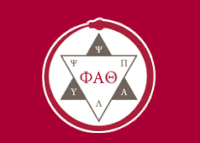The Transatlantic Slave Trade and the Portuguese Prazeros: An Economic Creation of Cultural Identity
Abstract
The transatlantic slave trade, which persisted for 366 years, marks the single largest migration of peoples and cultures that the world has ever seen, from Europe to the Americas, Africa, Asia and the Middle East, they were all connected in an international web of trading networks. Despite the vast research that has already been done on this trade, little information is known about the Portuguese Prazeros and their impact on the economics surrounding the number of slaves transported out of Africa, and the trades subsequent creation of new cultural identities. It is because of this mass migration of peoples, ideas, and technology that laid the framework for such cross cultural exchange to occur, and because of this it is important to examine the process of this exchange and the prevailing economic and cultural impacts. This study will make use of shipping records, journal accounts, and currency reports to evaluate these affects, as well as try to answer the question of defining identity. The evolution of the Prazero identity is just one of many examples of the affects this international slave trade had on the communities involved. An analysis of these, and other sources, will provide an understanding of how and why these new identities were created, and the economic impact the prazo system had on the trade as a whole.
Recommended Citation
Lorenzo, Phillip
(2014)
"The Transatlantic Slave Trade and the Portuguese Prazeros: An Economic Creation of Cultural Identity,"
Voces Novae: Vol. 6, Article 3.
Available at:
https://digitalcommons.chapman.edu/vocesnovae/vol6/iss1/3


